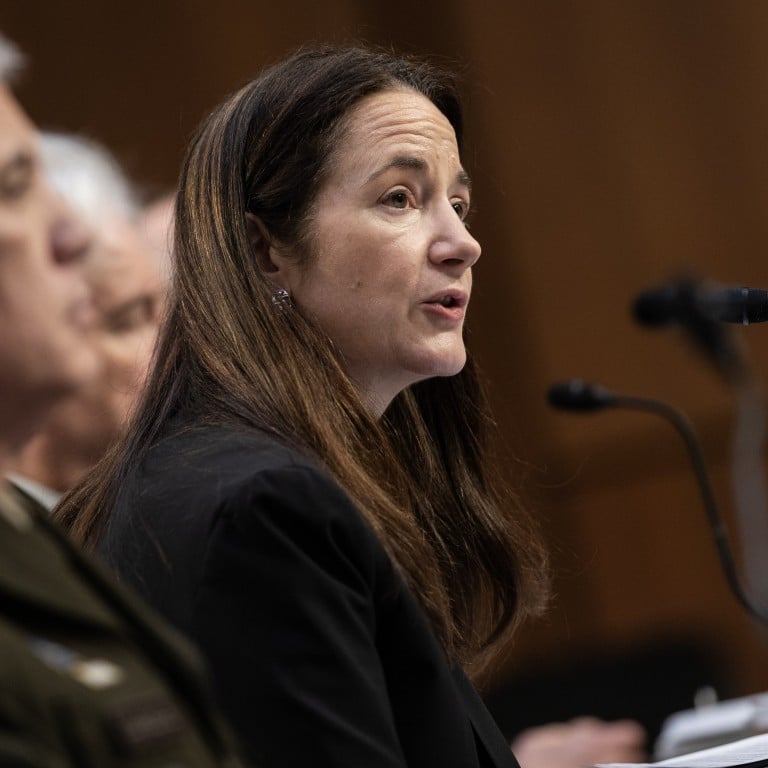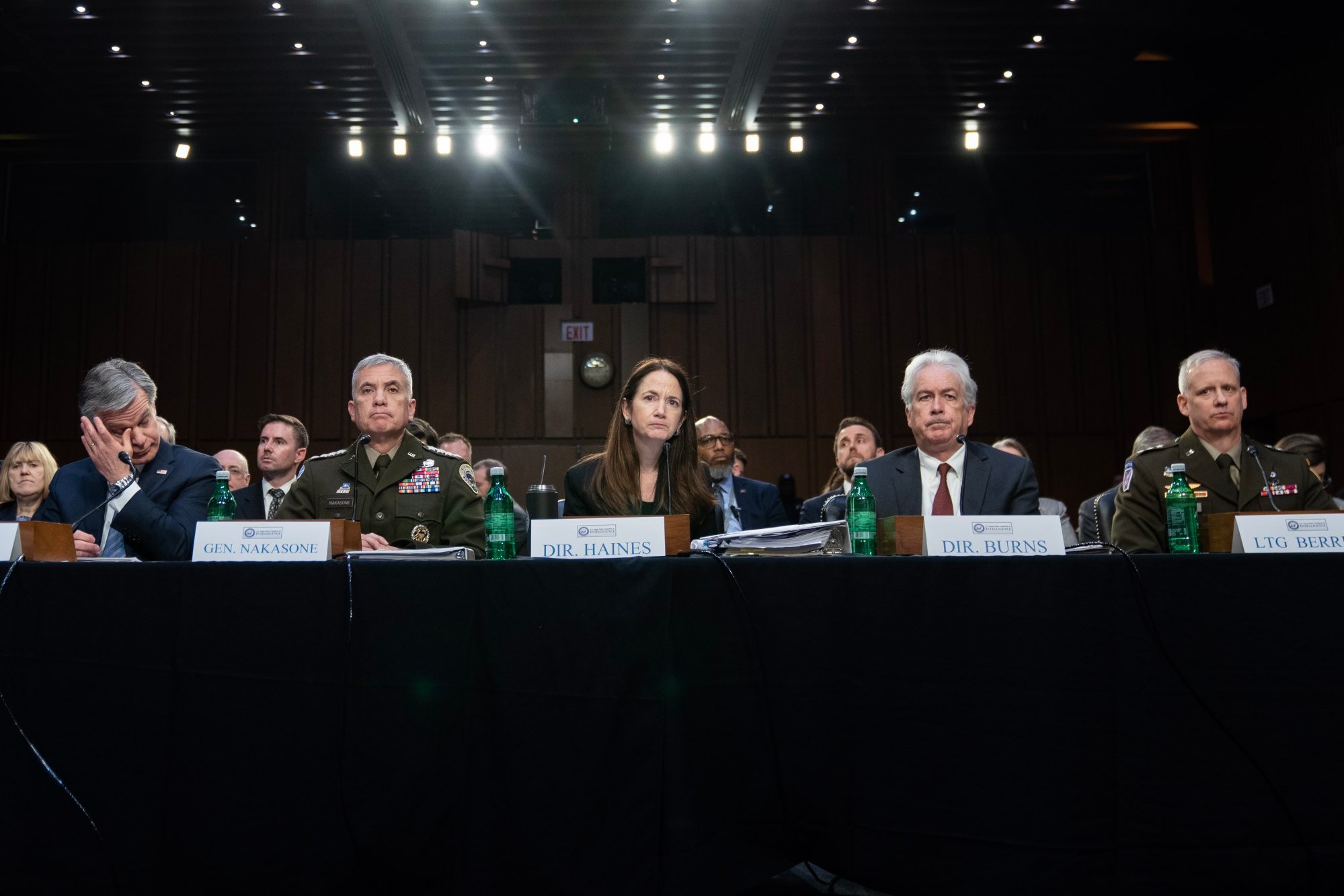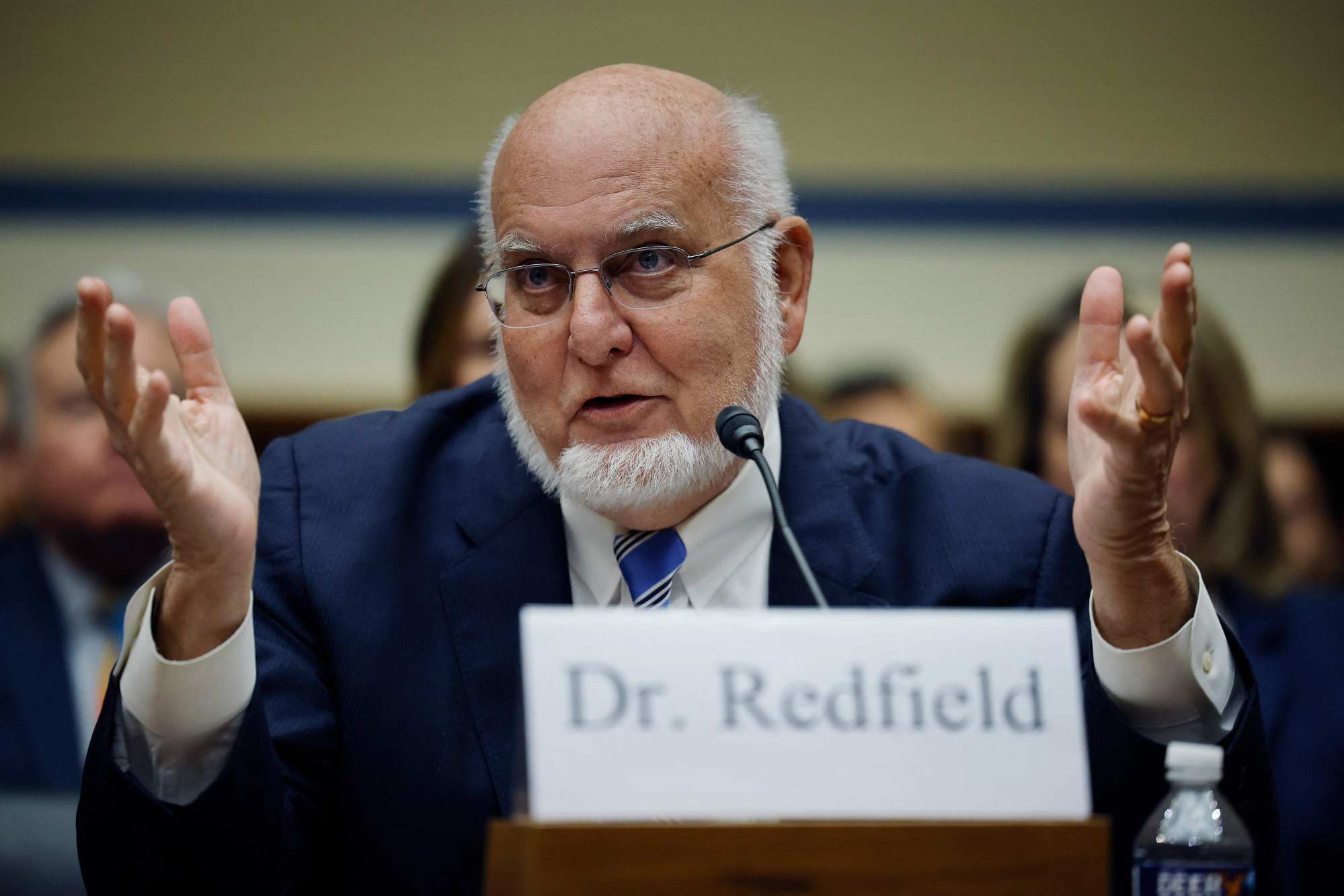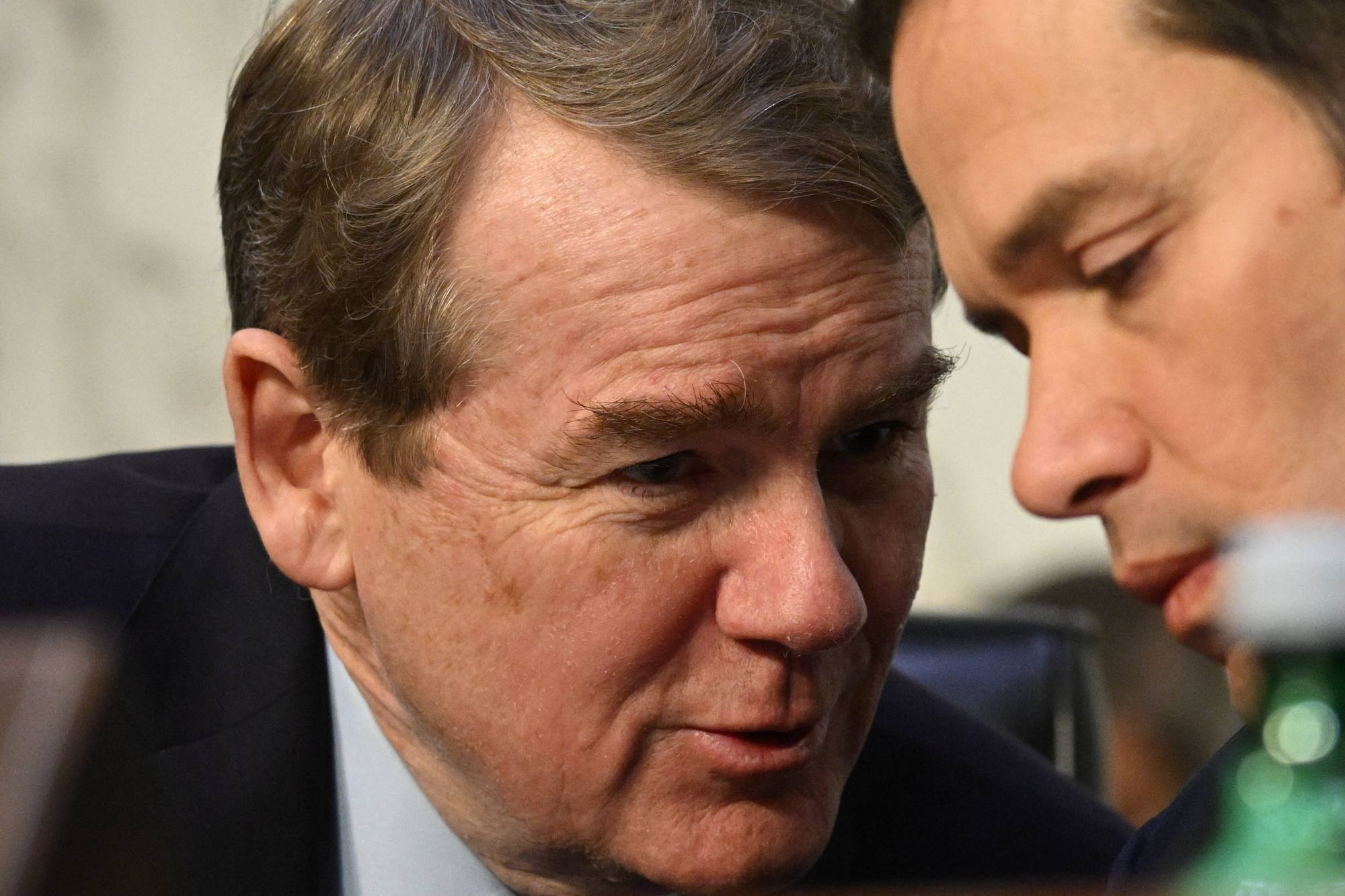
US lawmakers press intelligence chiefs on origins of coronavirus, threat from TikTok
- Ex-CDC chief urges push to show what data intelligence community has, ‘where they got it, who their informants were and what their conclusions were’
- On TikTok, FBI director asserts data collection through popular video app is available to Chinese officials amid support for nationwide ban
Republican lawmakers on Wednesday stepped up pressure on the US intelligence community to declare a Chinese lab leak as Covid-19’s most likely origin, in a day of congressional hearings about national security threats posed by China.
“It is disturbing to me that … you say all agencies assess that two hypotheses are plausible explanations for the origin of Covid – natural exposure to an infected animal and a laboratory-associated incident,” Collins told Avril Haines, the director of national intelligence. “That’s one of those statements that’s technically true, but misleading.”
Senator Marco Rubio, a Florida Republican, pushed Haines to explain why the intelligence leaders could not make a definitive assessment about Covid-19’s origins, despite “a lot of circumstantial evidence” pointing to the FBI’s conclusion that a lab leak was more likely than natural exposure.
“What would change … perspectives would be additional information, and we’ve been trying to collect additional information,” she said. “I think you’re absolutely right that China has not fully cooperated, and we do think that’s a key critical gap. That would help us to understand what exactly happened.”

In a separate hearing devoted to Covid-19’s origins, some members of the House Select Subcommittee on the Coronavirus Pandemic insisted that full disclosure by US intelligence would bolster trust in the government’s handling of the public health crisis.
“I think that the erosion of the trust of the American people needs to be reestablished and part of that is obtaining information,” said Representative John Joyce, a Republican from Pennsylvania.
The hearing came before a vote on a bill that would compel Haines’s office to declassify all information gathered on links between China’s Wuhan Institute of Virology and the coronavirus. The House of Representatives is expected to vote on the legislation on Friday.
The Covid-19 Origin Act of 2023 passed in the Senate last week by unanimous consent.
US lifting Covid-19 test requirement for travellers from China, CDC confirms
“I don’t think that answer [on Covid-19’s origin] is going to come from the scientific community,” Dr Robert Redfield, former director of the US Centres for Disease Control and Prevention, said in his testimony. “I think that answer is going to come from the intelligence community.”
Redfield called on lawmakers to push the intelligence community to show “what data they have, where they got it, who their informants were and what their conclusions were”.

Redfield also repeated his belief that “the Covid-19 infections more likely were the result of an accidental lab leak than the result of a natural spillover event”, but said both theories “needed to be aggressively and thoroughly examined”.
Paul Auwaerter, a professor at the Johns Hopkins University School of Medicine, told lawmakers at the House hearing: “We may never know the origin conclusively, making claims that cannot be supported sufficiently by available data only fuels confusion and mistrust.”
Representative Brad Wenstrup, an Ohio Republican and chairman of the select subcommittee, said there was not yet “a smoking gun”.
“I’d love for this thing to be from nature, I would love that because that would be better for all of us. But I can’t help but look at this and say there’s another possibility here,” he said, calling the issue a matter of national security.

Democrats and Republicans at the Senate Intelligence Committee hearing were more aligned on other issues relating to China, in particular the need for a nationwide ban on TikTok.
Senator Michael Bennet, a Democrat from Colorado, asked FBI Director Christopher Wray to “describe to the American people what the danger to them is of this platform that is run out of Beijing”.
Wray asserted that data collection through the app was available to Chinese officials.
“If you look at the Chinese government’s gobbling up of information and data, and then the use of AI and other tools to marshal all that data to conduct targeting for espionage, targeting for IP theft … data is the coin of the realm,” he said.
TikTok, which has been working with the US government to address its concerns, has rejected allegations that the Chinese government can spy on its users and has said it has spent more than US$1.5 billion on data security efforts.
On the economic exchange front, Senator John Cornyn, a Republican from Texas, has supported legislation that would create an investment review body to block US entities from supporting the Chinese government in developing technologies that could threaten American national security.
White House offers support for US Senate bill that could lead to TikTok ban
He asked Haines if she agreed that the US needed an “outbound investment transparency regime that would … give you greater insight into what we are financing [because] we in effect are financing our No 1 adversary and … it’s relatively opaque”.
She responded: “There’s no question that something that would create greater transparency would give us more information about this, and that would be valuable from our perspective.”
A measure in the previous Congress, the National Critical Capabilities Defence Act, would set up an inter-agency screening process for outbound investments and the offshoring of some manufacturing. Some sponsors, including Cornyn, have pledged to reintroduce the bill.
US says China has failed to crack down on copyright infringement, IP piracy
“Our country has seen an alarming rise in physical assaults, civil rights violations and other general harassment of Asian-Americans for no reason other than being Asian,” said Representative Hank Johnson, a Democrat from Georgia. “We are in an innovation war with China, but we don’t win that war by giving up our values and giving in to hate.”
Witnesses said China employed a variety of tactics to acquire intellectual property, including intelligence services, science and technology investments, academic collaboration, research partnerships, joint ventures, mergers and acquisitions and outright theft via insider threats and cyber intrusions.
While China’s legal IP framework has improved significantly since the 1980s, as it realised this was a key to attracting more foreign investment, many decisions have been decided in secret without insight into the judicial logic, in keeping with a system that gives the Chinese Communist Party oversight judicial decisions, said Mark Cohen, senior fellow at the Berkeley Centre for Law and Technology.
But the US needs to address its own shortcomings, they added, including a greater focus on science and technology in US education, ensuring that more engineers and diplomats speak Chinese. They also said stronger US patent protections only address the issue conceptually and do not single out individual countries.
“The good news in all of this is that China’s in many respects a planned economy,” said Cohen, “and many plans have published, so there’s really not too difficult to determine where China is targeting.”




